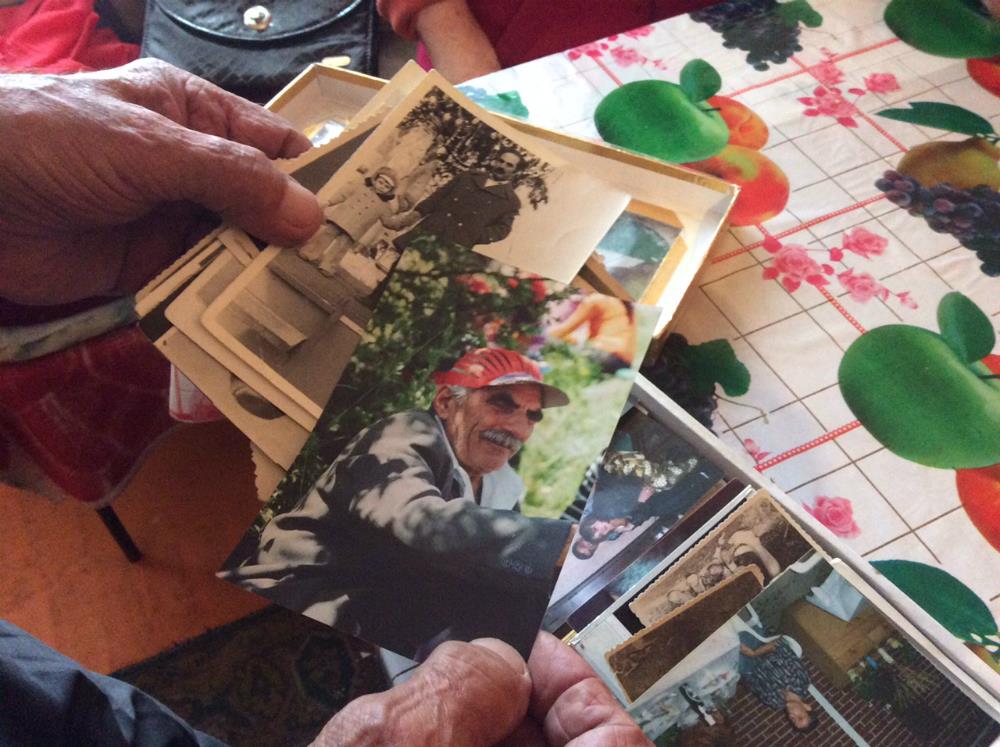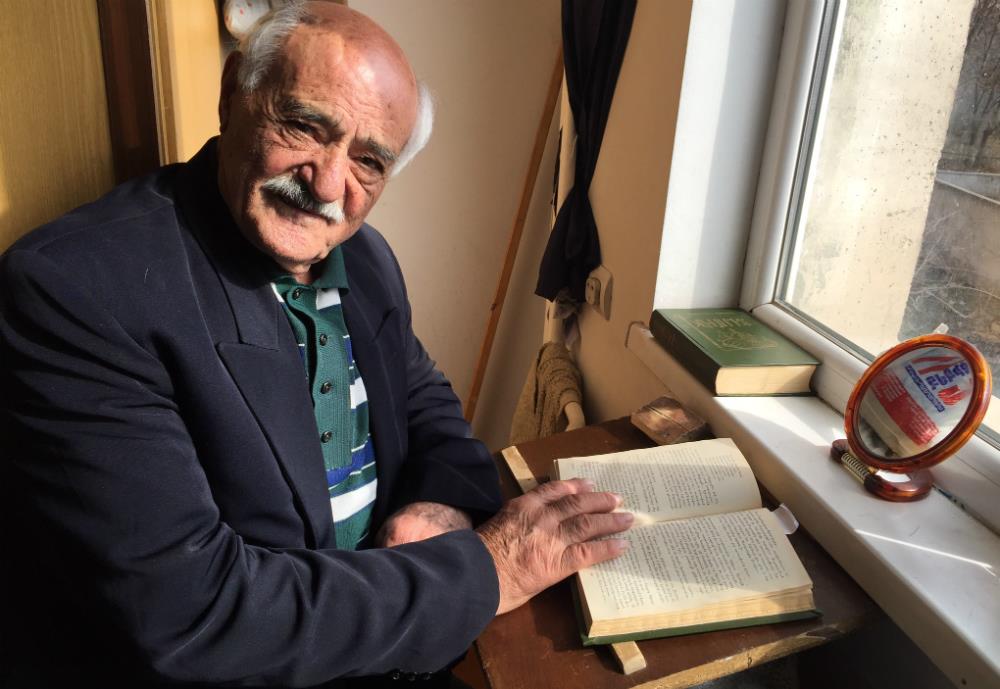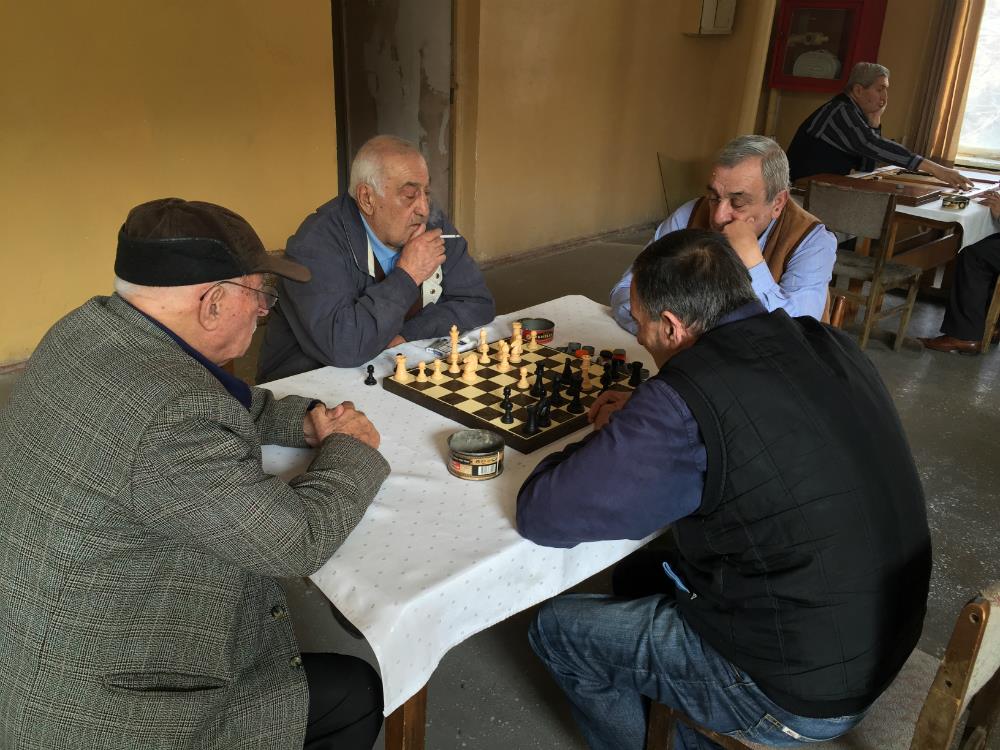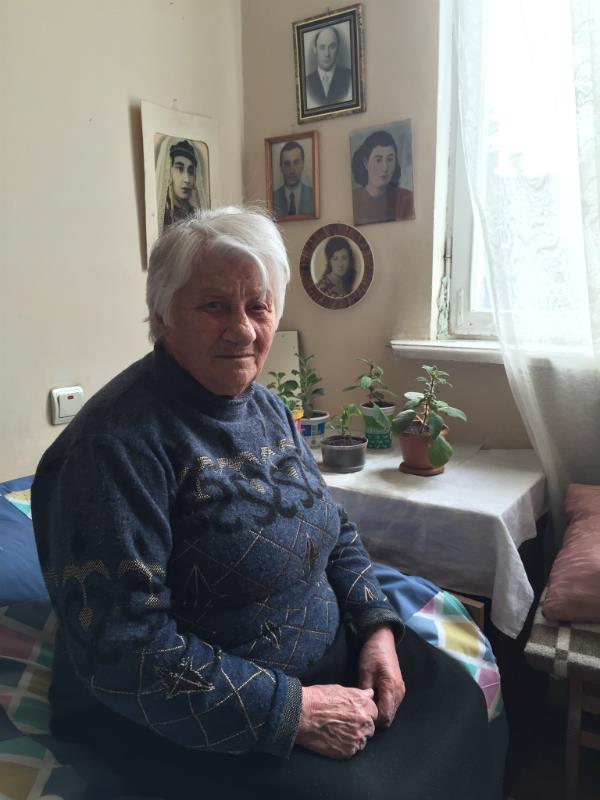What’s better – being a parent to a son or daughter?
Statistics show, in Armenia, sons are more prone to send their elders to nursing homes.
Half-a-century’s worth of memories are treasured in this photo album which covers an entire life, the bad and good days, achievements and losses. The Riffle of the album pages is the only thing that interrupts a heavy imminent silence in the room.
“This is my wife, our three sons. It’s me, when I was young. You can see me here with my junior son, and here – me with my daughter. This is our house with all its conveniences… I was raising them (children), providing them with everything.
“Today, these four walls are my home. Despite that I keep on living. I have brought this carpet, TV-set and bed. I can open the wardrobe for you – look how many clothes I have. When I adorn myself with fine clothes, wear cologne and go out, people turn their heads to look at me. I continue living though I am without my children,” says Haykaz Atoyan, 85, residing in the Yerevan-based residential care facility #1, and who has three sons and a daughter.

Haykaz’s wife died three years ago. In the residential care facility he got acquainted with Araksya Petrosyan, 80, and offered to marry her. They have been living together for five years.
Araksya also has children – three daughters and a son. She tells aggrievedly: “To have a house, to raise children, to arrange their weddings and then finally find yourself in an old people’s home?! My daughter brought me here. Before we left the car, she warned me: “Tell them that I am your neighbor’s wife.”
Araksya told her story frankly, but she refused to have her photos taken. The other old-age home inmates allowed us to take photos of them, but most of them refused to share their sad stories with a stranger.
For various reasons, 250 residents of the residential care facility found themselves here. The majority of them have children, whom they expect to come any minute, and they have their eyes on the road.
“Many dwellers receive visitors, but some old people are not visited by anyone at all, though we know they have relatives. Communication is of great importance to them.
They are longing. It is noteworthy that daughters visit their parents more often. They are more attentive and caring than sons, who come less frequently,” said Lilit Pogosyan, a residential care facility social worker.
Harut Mkrtchyan, 82, a Yerevan-based Nork residential care facility inhabitant, has three daughters and a son. He also claims that in most cases, daughters take more care of and are more concerned about their parents.

“Sometimes it happens so that sons fail to cope with problems in their families. For example, a son has already two children and matrimonial difficulties appear. He cannot take his parents’ side or his wife’s side – as his parents will be disappointed.
You create them, raise them, transfer your home and property to them, and what you get in return is just indifference – insulting. You try to find a way out: either go to your daughter or rent a flat. Anything can happen in life,” notes Harut Mkrtchyan.
In 2015, the Armenian Office of the UN Population Fund conducted a survey among persons under care in three residential care facilities in Gyumri and in two facilities in Yerevan.
The aim of the survey was to find out the number of residential facility inhabitants, who had children, as well as the daughter/son ratio. According to the survey findings, 284 people out of 623 residential care facility inhabitants had no children.
Of the inhabitants, 365 people had sons, with 61 percent of these sons not visiting their parents.

Anna Hovhannesyan, coordinator of the UN Population Fund’s Population Policy Promotion Program, notes: “Much is said about Armenian families giving preference to sons. This will result in a gender imbalance in future.
The Armenian society’s patriarchal structure provides more preferential conditions for boys. Data revealed that both sons’ and daughters’ parents find themselves in residential care facilities.
However, the number of people with daughters is less than those having sons. Herewith the data: 354 people have daughters, 173 of them – 49% do not visit parents.
According to another study, conducted by the UNFPA “Prevalence of and Reasons for Sex-Selective Abortions in Armenia’, 7200 cases of sex-selective abortion were reported in Armenia over the past five years. It means that an average of 1500 girls were not born in Armenia within a year.
Hermine Virabyan, 36, has two daughters and a son. She says she has had three sex-selective abortions.
“Each time I was waiting for the 12th week to know the child’s sex and three times I was going to have girls. We have already had two daughters and it was very important for us to have at least one boy. We, Armenians, believe that a son should continue the family line, take care of us, live with us. Daughters get married and go to another family,” Hermine noted.
According to the survey, there are six times more families willing to have sons, than those expecting daughters. Two women out of five noted they would want to have a son – the first birth. Only one woman out of seven questioned wanted their first-born to be a girl.
If selective abortions continue in Armenia, the country is going to lose approximately 93 thousand girls – potential mothers.
Armenia is rated the third in the world as to the gender disproportion after China and Azerbaijan. Armenia is followed by Georgia and Albania.
Thus, the dream of a son – a bearer of the family name and the parents’ supporter do not always come true and old people live far from their families. Sometimes they get news from their children on a phone or by Skype.
Vaan Asatryan, the Head of the International Center for Human Development, notes that the above-mentioned survey in the residential care facilities proves the need for changing people’s views and attitudes.
In the expert’s opinion, the problem could be solved through work with the broader layers of the population – through raising people’s awareness and establishing dialogues.

Marusya Sargsyan, 86, a Nork residential care facility resident, has never had her own children, but she raised her husband’s five children.
“I had lived with them for 17 years, I had raised them, and married them off. But after my husband had died, they no longer needed me.
I moved to Yerevan, to my brother’s place. I used to work as the State Standard building supervisor, then at a dairy factory. Then the country disintegrated and I shared the same lot. There was no way out.
I have been here since 2006. I have nobody to wait for, but I see how other people are waiting.
I know that some children come with a kilo of sweets, but then they take the whole pension of a mother or a father and just go away.
There are even people with three sons, who have ousted them from home. I am told:
“You have no children and you can say, that you don’t have them, that’s it. As for us, we act as if we have children, but there are actually none of them. What should we do?”


















